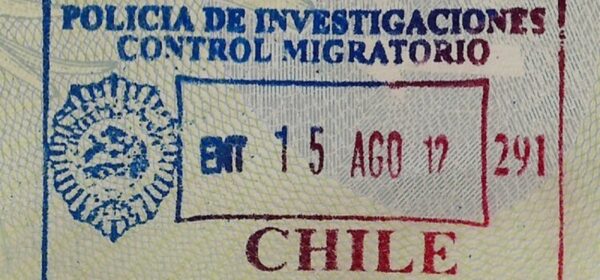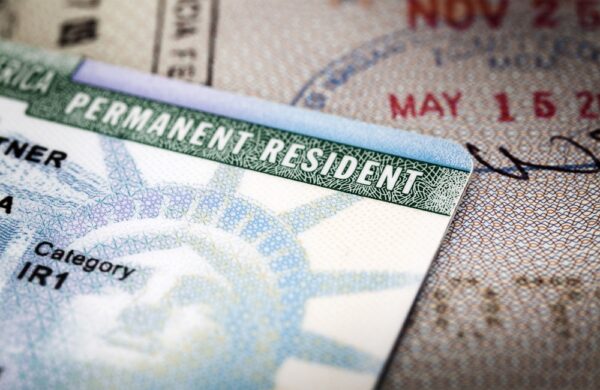As a foreigner in a country outside your country of origin, it is important to know and understand the rules that guide your visa status and the work permit you’re holding. This is to avoid violating immigration regulations or, worse still, termination of employment authorization. One of the common questions often asked by immigrants is, “Can a work permit be revoked?” Well, yes a work permit can be revoked when you don’t keep your side of the bargain. We will shortly explore what a revocation means, reason, consequences, and prevention.
What is a Work Permit Revocation?
A work permit revocation occurs when the government or immigration authority withdraws the work permit of a foreign worker or work visa holder on legal grounds, more like an employment authorization. This leads to the revocation of employment authorization of that individual, making their stay an unlawful presence in the country. For an international employee, a work permit gives them the lawful status to earn a living and maintain legal residency, and its revocation can withdraw all these rights. Most often, a work permit is revoked due to non-compliance with the permit’s terms and conditions. Understanding the reasons behind a revocation of employment authorization, its implications, and how to prevent it is vital for both employees and employers.
Reasons Why a Work Permit Can be Revoked
There are many reasons why the work permit of a foreign national can be revoked, and here are some of them below:
1. Not Complying With Immigration Regulations
Non-compliance with immigration regulations is a significant and legal ground for work permit withdrawal. Breaking immigration rules, such as overstaying the duration of a visa, providing false or misleading information during the application process, or failing to notify authorities about changes in personal circumstances, such as a change of employer, might jeopardize your stay and give you an unlawful status.
Let’s move away from the major violation. Even something as minor as missing the deadline for your visa or permit renewal or failing to report a change in your home address can get you in trouble with immigration authorities. Immigration authorities view these actions as breaches of trust and can revoke permits to maintain the integrity of their systems.
2. Violation of Work Permit Conditions
Different countries have different employment visas or permit types, as well as different conditions guiding these permits. A work permit always comes with conditions personalized based on the employee’s role and industry. These conditions may specify job responsibilities, the permitted number of working hours, and the geographical location of work. If, under any circumstances, you ignore these conditions. Maybe by taking an extra job or working extra hours outside what is stated in your permit, then you’re at risk of your work permit being revoked. Likewise, engaging in unauthorized activities, such as freelance work or pursuing a different profession, is viewed as a breach of employment contract with the host country, potentially leading to revocation.
3. Criminal Activities
Judging from the word “criminal activities,” you don’t have to think much to know that it’s not something to engage in, even in your home country. Engaging in criminal activities as a foreign visa holder is one of the most severe violations that can lead to immediate revocation of a work permit and deportation proceedings. Talk of crimes like fraud, drug dealings, or any activity that poses a threat to citizens and the general public.
4. Employer-Related Issues
Working abroad depends on both the employee and the employer that provided the work sponsorship. Likewise, when it comes to keeping a work permit, your employer has a role to play. When an employer provides fraudulent information to secure a permit or fails to adhere to labor laws or pay wages, it can put the sponsored employer in a tight spot and risk revoking the work permit.
Another situation in which employment contributes to an international worker’s work permit revocation is when a business shuts down, employment is terminated prematurely, or sponsorship obligations fail. In this case, the permit holder is held accountable, and their immigration status becomes shaky, or they may have to look for alternate employment.
Consequences of Having Your Work Permit Revoked
The revocation of a work permit can have grave effects on a foreign national’s immigration status. Here are some of them:
1. Loss of Legal Status
Once a work permit is revoked, the work visa holder automatically loses all legal rights attached to the permit. This includes the right to work and even stay in the host country. Without this lawful status, any continued stay becomes unlawful. This means aside from the offense that leads to the revocation of a permit, the holder can be exposed to potential fines, legal action, or even imprisonment in severe cases. In addition, losing legal status in a host country negatively affects future visas or permits since you’re already on a bad record.
2. Deportation Risk
Permit revocation, losing resident status, and deportation go hand in hand, especially in severe cases. Once this occurs, the individual in question is given a notice period and asked to leave the country for some time, some permanently. It all boils down to the gravity of the immigration offense.
3. Career Disruptions
The sudden loss of one’s authorization for employment can no doubt halt professional growth and ambitions. Individuals may have to leave behind promising projects, employment relationships they’ve built over time, and many other things.
4. Financial Strain
Losing a job means a sudden halt in income, which can lead to difficulties in paying rent, bills, or supporting dependents. Legal fees to appeal the revocation or cover deportation-related expenses, such as travel costs, add to the burden. Additionally, relocating back to one’s home country or another destination can be costly, especially on short notice.
5. Employer Penalties
Not just the permit or visa holder has to bear the brunt of a permit revocation, especially when the employer has a role to play in it. For employers, a revoked work permit can lead to consequences such as fines, suspension or loss of sponsorship privileges, and legal scrutiny of their business operations, which might lead to lawsuits or business closures.
How To Prevent Your Work Permit From Being Revoked
To avoid being in a situation where your permit can be revoked, then you need to comply with immigration laws and employment regulations. Here are the key ways to keep your head above the water while you ensure your work permit remains valid:
1. Understand and Comply With Work Permit Conditions
You need to familiarize yourself with the specific terms and conditions of your work permit and employment status. These may include restrictions on job roles, working hours, location, or the validity period. Make sure you follow these rules duly to avoid breaches that could trigger revocation. For instance, avoid taking on side jobs or working in unauthorized roles that go beyond what is stated in your permit.
2. Maintain Accurate and Up-to-Date Documentation
Ensure that all your documents, such as your passport, work permit, and visa, are valid and up-to-date. Notify immigration authorities of any changes to your personal or professional circumstances, such as a change of address, marital status, or employer. Keeping your records accurate demonstrates your commitment to compliance.
3. Renew Your Work Permit on Time
Always track the expiration date of your work permit and start your renewal process on time. While you're at it, also ensure you follow the immigration process duly. Late renewals can cause a loss of legal status, even if you were eligible to continue working. Early renewal ensures continuity and reduces the risk of administrative errors.
4. Avoid Criminal Activities
Engaging in illegal activities can result in immediate revocation of your work permit. Always follow the laws of the host country, including those related to taxes, public safety, and immigration. Even minor offenses can be grounds for revocation in some jurisdictions, so maintaining good conduct is crucial.
5. Communicate With Your Employer
As far as employment-based immigration is concerned, your employer plays a very important role. Regularly check in with your employer to confirm that the details they have about you are correct. Likewise, confirm that all the necessary paperwork regarding your employment, such as work sponsorship documentation, is settled. To sum it up, have a good employment relationship with your employer.
Stay Informed About Immigration Laws
Immigration policies and regulations can change from time to time, so it’s advisable to stay updated on policies regarding work permit status. Subscribe to updates from immigration authorities or consult with legal professionals to ensure you’re aware of the latest requirements.
Consult Professionals When in Doubt
If you’re unsure about your compliance or face unexpected circumstances, seek advice from an immigration lawyer or consultant. They can hold your hand as you navigate complex regulations and address any issues before they escalate into revocation risks.
What to Do If Your Work Permit is Revoked
In a case where you find yourself in a work permit revocation issue, here's what to do:
Understand the Reason
When your work permit is being revoked, the first thing to do is to go over the revocation notice handed to you by the immigration authorities. The revocation notice usually contains the reason behind your permit being revoked. If the reasons have nothing to do with you, you can ring the immigration office for clarification. But if you are guilty, you might want to speak with an immigration adviser or lawyer.
Seek Legal Advice
Based on your situation, an immigration lawyer or adviser can provide personal guidance that can help your situation. They can help you identify if the revocation was justified and whether you have grounds to challenge it. Also, they can help you prepare and submit an appeal or alternative visa application in cases of legal proceedings and submission of an immigrant petition. You can protect your rights as an immigrant and ensure you’re treated fairly with an immigration attorney by your side.
Explore Temporary Solutions
It's possible to stay in your host country while maintaining a legal status. You can try an alternate immigration path. Something like trying a different employment visa category or non-immigrant visa like the student, tourist, or visitor visa will help you attain that. Also, ensure that you meet the eligibility requirements for any alternative visa category you’re going for. Some countries offer bridging visas that allow you to remain in the country for a maximum of a 60-day grace period while your case is being processed.
Plan for Possible Deportation
If getting an alternative visa application does not work out, you might want to prepare for deportation proceedings. Settle all pending bills to avoid any future issues. Discuss with your employer, landlord, and anyone you think you should notify. Organize your belongings and ensure you have the necessary documents to help with a smooth transition.
Final Thoughts
For many immigrants, work permits are a means to an end, financially and career-wise. However, a work permit revocation can turn this opportunity into something sour because there is no employment without authorization. You can avoid being in a work permit revocation situation. Familiarize yourself with the reasons for revocation and avoid them. Taking immediate action, like contacting an immigration attorney, will help you nip the issues in the bud.
















